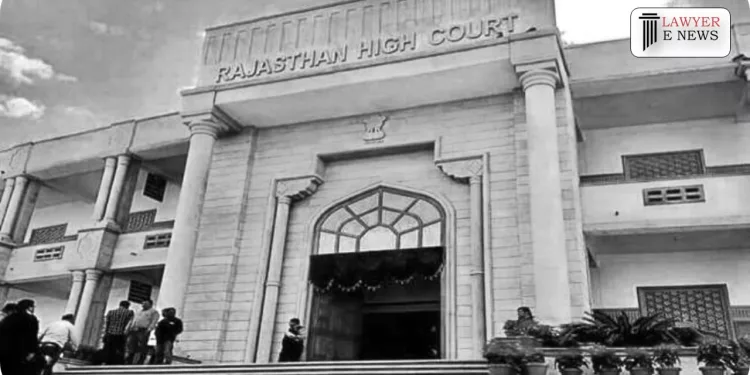“No Room for Arbitrary Dismissals: High Court Quashes Unjust Removal of Police Constable, Stresses Due Process”

In a landmark ruling, the High Court of Judicature for Rajasthan, Bench at Jaipur, led by Hon’ble Justice Anoop Kumar Dhand, has set a precedent in upholding the principles of justice and equality in the workplace. The court, in its decision on October 3, 2023, quashed the dismissal order of a police constable, emphasizing the indispensability of due process.
The case, numbered [2023:RJ-JP:21106], revolved around the petitioner, a Head Constable who was summarily dismissed from service based on an audio clip, without a formal inquiry as mandated by Rule 16/17 of the Rajasthan Civil Services (Classification, Control and Appeal) Rules, 1958. The petitioner’s plea challenged this dismissal, highlighting the lack of due process and apparent discrimination compared to a co-delinquent who was only suspended and faced departmental proceedings.
Justice Dhand, in his judgment, underscored the importance of adhering to procedural norms. He stated, “What however is non-negotiable is that the Disciplinary Authority must state its reason in writing for dispensing with a disciplinary enquiry which would have an indelible impact on the person who is removed, dismissed from service or reduced in rank without an enquiry.” This remark highlights the court’s firm stance on the necessity of procedural fairness in disciplinary actions.
The court scrutinized the respondent’s decision to bypass the regular inquiry process, focusing on the requirement to record reasons for such a decision. The judgment also pointed out the discriminatory treatment of the petitioner in comparison to the co-delinquent, stressing the principle of equality among individuals facing similar allegations.
In a significant observation, the court noted, “The threshold to prove dispensation of due process and compliance with the principles of natural justice is high in all matters but particularly heightened in Rule 19 (ii) of the Rules of 1958.” This statement from the bench resonates with the broader legal principle that justice must not only be done but also be seen to be done.
The verdict was a relief to the deceased petitioner’s family, as the court declared the removal invalid and ordered that it be deemed the petitioner had died in harness. This ensures the petitioner’s entitlement to the payment of arrears of salary from the date of termination to the date of his death and directs the payment of terminal benefits to his legal representatives.
This decision by the Rajasthan High Court is seen as a critical reminder to all administrative authorities about the importance of maintaining transparency, fairness, and equality in disciplinary proceedings. It reaffirms the judiciary’s role in safeguarding the rights of individuals against arbitrary and discriminatory practices in employment.
Date of Decision: 03.10.2023
Hanuman Ram VS State Of Rajasthan






